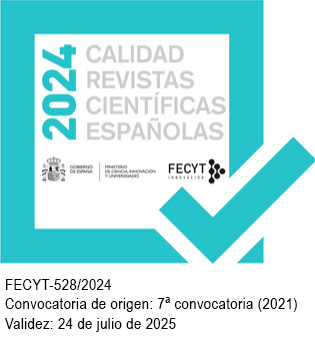When ir a + infinitive does not lead to the future: Past tense, completive and focus values. A Construction Grammar approach
doi: http://dx.doi.org/10.31810/RSEL.49.6
Abstract
This paper analyzes the emergence and evolution in Spanish of three verbal constructions that share the same form as the Spanish verbal periphrasis for expressing future time, namely, <ir a + infinitive> ‘to go + inf’. Specifically, those constructions are verbal periphrases expressing the past tense, the completive and focus values. The past periphrasis and the completive one share the same etymology as the future tense periphrasis: a construction in which the verb ir ‘to go’ expresses an advance in time. The omission of the indication of the place towards which the movement takes us will allow us to stop focusing on a destination in order to envisage the event expressed by the infinitive of the construction. On the other hand, the focus construction constitutes a further evolution of the completive periphrasis. From the 18th century onwards, the distribution of these three periphrases is the same as that of modern Spanish: the past periphrasis has disappeared from the language and the other two are maintained in contexts of communicative proximity.
Keywords: grammaticalization; Diachronic Construction Grammar; verbal periphrases; historical linguistics.
Downloads
Published
How to Cite
Issue
Section
Copyright (c) 2019 Revista Española de Lingüística

This work is licensed under a Creative Commons Attribution-NonCommercial 4.0 International License.











